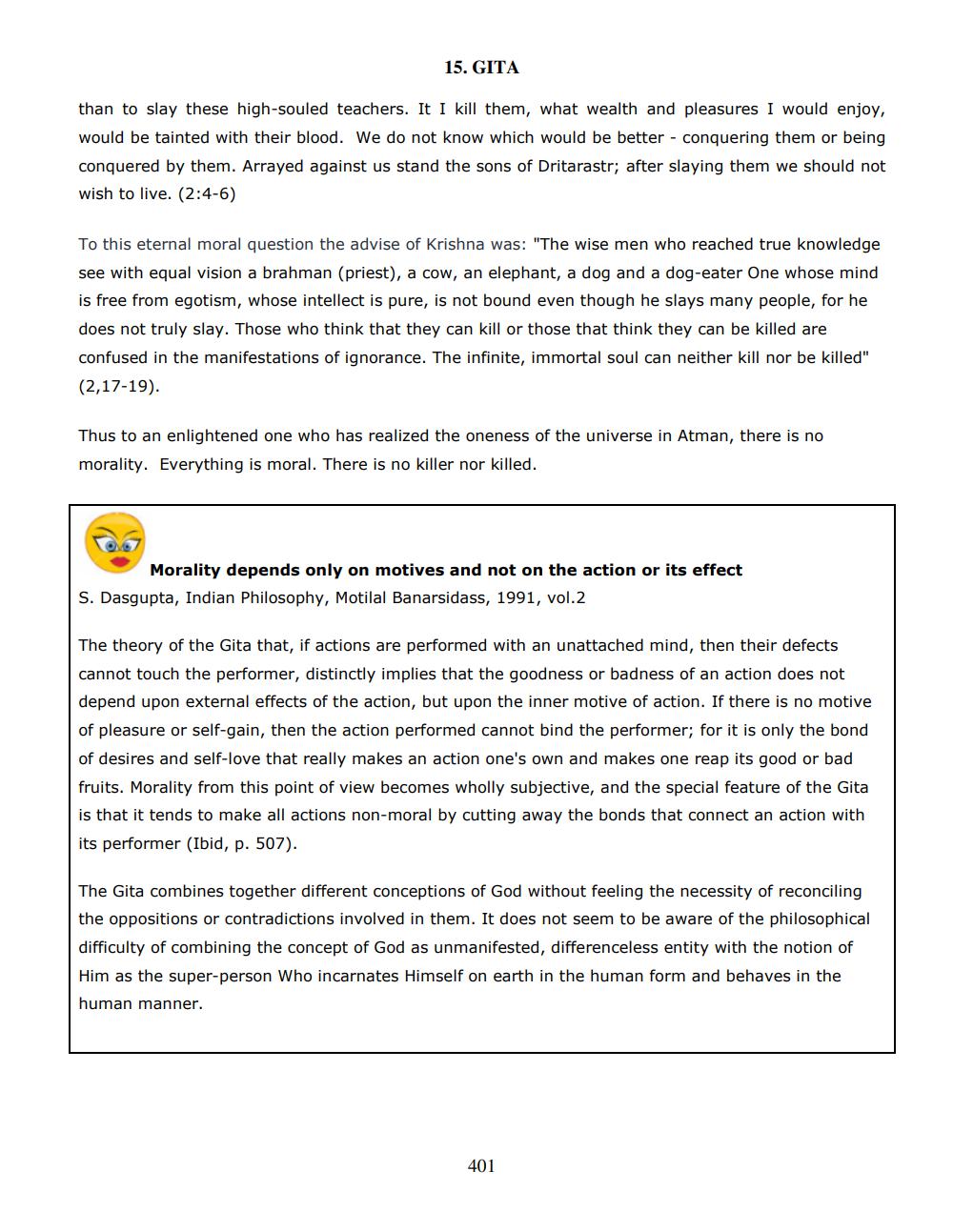________________
15. GITA
than to slay these high-souled teachers. It I kill them, what wealth and pleasures I would enjoy, would be tainted with their blood. We do not know which would be better - conquering them or being conquered by them. Arrayed against us stand the sons of Dritarastr; after slaying them we should not wish to live. (2:4-6)
To this eternal moral question the advise of Krishna was: "The wise men who reached true knowledge see with equal vision a brahman (priest), a cow, an elephant, a dog and a dog-eater One whose mind is free from egotism, whose intellect is pure, is not bound even though he slays many people, for he does not truly slay. Those who think that they can kill or those that think they can be killed are confused in the manifestations of ignorance. The infinite, immortal soul can neither kill nor be killed" (2,17-19).
Thus to an enlightened one who has realized the oneness of the universe in Atman, there is no morality. Everything is moral. There is no killer nor killed.
Morality depends only on motives and not on the action or its effect S. Dasgupta, Indian Philosophy, Motilal Banarsidass, 1991, vol.2
The theory of the Gita that, if actions are performed with an unattached mind, then their defects cannot touch the performer, distinctly implies that the goodness or badness of an action does not depend upon external effects of the action, but upon the inner motive of action. If there is no motive of pleasure or self-gain, then the action performed cannot bind the performer; for it is only the bond of desires and self-love that really makes an action one's own and makes one reap its good or bad fruits. Morality from this point of view becomes wholly subjective, and the special feature of the Gita is that it tends to make all actions non-moral by cutting away the bonds that connect an action with its performer (Ibid, p. 507).
The Gita combines together different conceptions of God without feeling the necessity of reconciling the oppositions or contradictions involved in them. It does not seem to be aware of the philosophical difficulty of combining the concept of God as unmanifested, differenceless entity with the notion of Him as the super-person who incarnates Himself on earth in the human form and behaves in the human manner.
401




